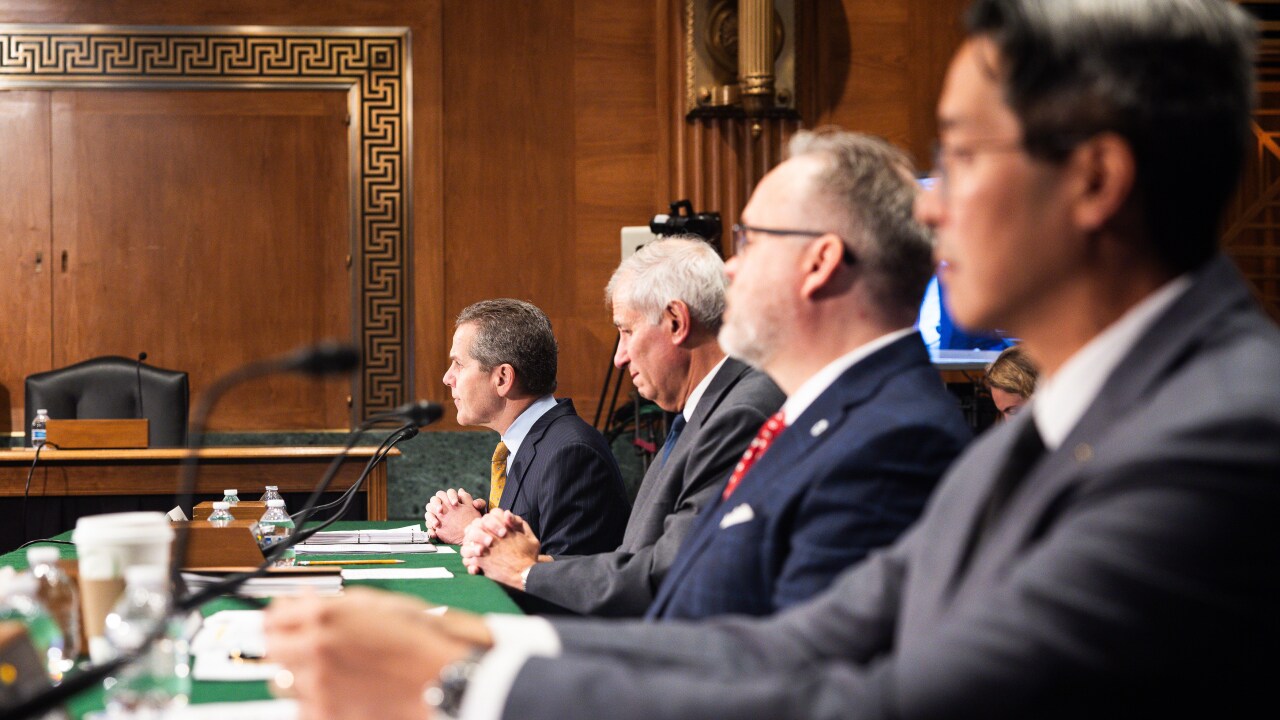
WASHINGTON — An interagency national security committee led by the U.S. Department of the Treasury Monday proposed a rule expanding the committee's authority to review real estate transactions located near dozens of military installations across 30 states.
"The changes we're proposing are a result of a recent comprehensive assessment by the Department of Defense regarding its military installations," said a Treasury spokesperson. The assessment included "coordination across all military services to make sure the installations listed in [The Committee on Foreign Investment in the United States] regulations are appropriate and current based on the operations, assets, missions and training at each installation."
This expansion announced by the Treasury — in its role acting as chair of CFIUS — taps authority Congress gave the committee in 2018 to review and intervene in real estate transactions that could pose national security risks. The Foreign Investment Risk Review Modernization Act of 2018 allows the committee to review real estate transactions — including the purchases of agricultural land near military bases — that could enable foreign actors to spy on U.S. military operations or otherwise pose national security risks.
The proposal also comes on the heels of a recent action blocking crypto mining company MineOne Cloud Computing Investment I L.P. — which the Treasury says has financial ties to Chinese nationals — from purchasing real estate near the Francis E. Warren Air Force Base, citing national security concerns.
CFIUS jurisdiction, as updated in 2018, covers three main types of transactions. It includes control investments where a foreign entity gains control of a U.S. business, certain noncontrolling investments in sensitive technologies and sectors and a broader range of real estate transactions, including some outside the purview of the first two categories.
In 2020, CFIUS added 163 military installations to its jurisdiction. These regulations allowed CFIUS to review real estate purchases, leases or concessions by foreign entities around each site. Last year, the Department of Defense — another key CFIUS member — took the lead in compiling and updating this list, adding eight additional military installations in 2023. The proposed rule aims to add over 50 military installations across 30 states to the list of areas under CFIUS's purview, significantly broadening the scope of its jurisdiction. The new additions include transactions within a one-mile radius of 40 new military installations and those within a 100-mile radius of 19 additional installations. Under the proposal, the total number of covered military installations would increase to 227.
Additionally, a Treasury spokesperson noted it would move eight installations already on the one-mile list to the 100-mile list. The proposal also reconciles duplicative coverage by removing three military bases already covered by new sites being added, updating the names of military installations and providing specific location information to better demarcate each area for the public.
Treasury Secretary Janet L. Yellen emphasized the importance of this expansion for national security, noting that it aligns with President Biden's commitment to protecting sensitive military sites from foreign threats.
"President Biden and I remain committed to using our strong investment screening tool to defend America's national security, including actions that protect military installations from external threats," Yellen said. "CFIUS plays an integral role in U.S. national security by thoroughly reviewing real estate transactions near sensitive military installations, and this proposed rule will significantly expand its jurisdiction and ability to accomplish this vital mission."
Public comments on the proposed rule will be accepted for 30 days following its publication in the Federal Register.







